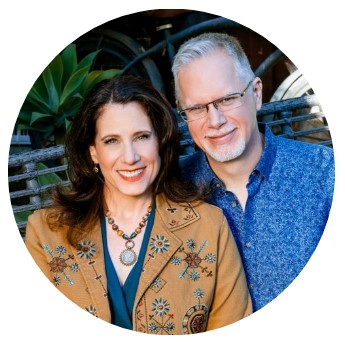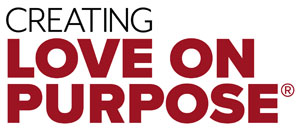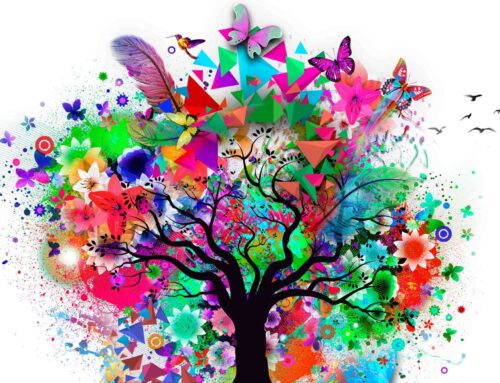What Is Self-Love? 11 Ways Loving Yourself Improves Your Relationships
Loving yourself is not a replacement for the romance of falling in love with somebody. Self-love has nothing to do with passion or infatuation. Instead self-love stems from your level of self-esteem and value, as well as your habits to maintain it.
Self-love is the foundation of your ability to take care of yourself in your relationships. It can assist you in preventing toxic and other unhealthy patterns by allowing you to set boundaries and to be clear on what you refuse to accept.
If you are hard on yourself, speak harshly to yourself, and are unkind to yourself, it won’t feel right when you meet someone who is kind and compassionate with you. People who have low self-esteem or have a low opinion of themselves often end up in toxic relationships because they don’t believe they deserve better.
Water seeks its own level in relationship. When you love yourself, you partner with someone who is capable of loving you in a healthy, respectful way.
If you don’t like yourself, you’ll subconsciously seek rejection or chase emotionally unavailable partners hoping they’ll bestow love upon you (a fruitless exercise of chasing rejection).
To create healthy, lasting love, you must learn to love yourself, flaws and all. Ultimately, you don’t get love from another person. It is the love you have for yourself that is reflected back to you through the eyes of your beloved.
What Is Self-Love?
Self-love involves practices and beliefs that promote your physical, emotional, psychological, and spiritual well-being. Loving yourself requires that you stand up for yourself and surround yourself with people who respect you and treat you well. Self-love extends yourself grace and forgiveness when you make mistakes.
The idea of self-love can often be mistaken for narcissistic self-importance or selfish indulgence, but it has nothing to do with the negative aspects of self-absorption and materialism.
Loving yourself is not a replacement for the emotional intimacy of a healthy relationship. Self-love is an integral part of personal growth and improves the quality of all your relationships, especially the one with yourself.
Self-love is not a form of complacent self-acceptance. It’s learning to accept who you are, warts and all, while striving to become better, not from a place of judgment but from a genuine desire to evolve.
You may easily mistake spa days, fancy dinners, or shopping sprees as an expression of self-love. While there’s nothing wrong with any of these activities, they’re more focused on sensual, material pleasures than they are on a healthy sense of self.
Self-indulgence is about doing what feels good in the moment. Self-love sometimes requires you to delay gratification to receive something more lasting.
Even though self-love is focused on your relationship with yourself, loving yourself will pay off in your intimate relationships. Since you are the common denominator in all your relationships, having a healthy relationship with yourself lays the groundwork for creating healthy, lasting love with a partner.
11 Ways Loving Yourself Improves Your Relationship
-
Your Happiness Is Not Contingent On A Partner
When you seek love and validation from outside of yourself, a partner has control over your self-esteem. By loving yourself, you aren’t reliant on someone else for your happiness, your peace of mind, or your confidence.
You’re less likely to end up in a co-dependent or toxic relationship. Because you’re more comfortable with who you are, you won’t tolerate someone trying to control you or manipulate you. You know that if it doesn’t work out, you’ll be fine on your own.
-
You Have Better Communication
When you love yourself you’re connected to your own thoughts and emotions allowing you to communicate more effectively with a partner. You’re more confident being authentic because you like who you are.
Your openness and willingness to communicate creates a safe space for a partner to speak up for themselves allowing a deeper connection to grow between you. Good communication skills reduce misunderstandings and conflicts. You’re more able to handle disagreements with grace and patience.
-
You Increase Respect And Accountability
Part of loving yourself is taking responsibility for your thoughts, feelings and actions. Being able to take responsibility for your emotions and behavior allows you to cultivate respect with others. Acknowledging your mistakes, apologizing, and making amends when necessary are the foundation for a healthy partnership.
By owning your part in any conflict or misunderstanding, you pave the way for reconnecting with your partner rather than falling into a cycle of blame and defensiveness.
-
You Get Your Needs Met
As you cultivate self-love you learn to love yourself so you can teach someone to love you. Identifying your needs is the first step, and having the courage to ask for what you want is the next. Infatuation and deep love don’t come with mind-reading powers. Sometimes, you must speak up and ask for what you want.
When you identify and communicate your needs, you’re more likely to find an ideal partner. They will want to meet your needs and increase your happiness.
-
You Increase Emotional Intimacy
You can’t love yourself if you don’t know how you feel. By identifying and acknowledging your emotional state, you learn that your feelings count and matter. When you’re in touch with how you feel, you become aware of who inspires positive feelings in your life and who inspires negative ones.
You build emotional intimacy by sharing your feeling state. If you’re disconnected from your emotional life, you’ll also feel disconnected in your intimate relationship. Sharing your authenticity is an invitation to the other person to share their authentic experience as well. When you both share and acknowledge each other’s truth, you create a strong emotional connection.
-
You Share Acceptance And Kindness
Perfectionism and judgment are major blocks to love. Beating yourself up because you made a mistake is the opposite of loving. Loving yourself begins with self-acceptance. The ability to accept yourself as you are — warts and all — creates space for you to accept the imperfections of a partner.
Acceptance is enhanced when you can treat yourself with kindness even when life doesn’t go your way. This practice helps you avoid toxic, negative people. If you won’t tolerate judgment or negative thoughts about yourself, you won’t permit them from a partner. You’ll be drawn to someone who matches your compassion and kindness.
-
You Have More Compassion and Empathy
Accepting your flaws makes it easier to accept a partner’s imperfections. When you acknowledge and embrace your own shortcomings it’s easier to extend the same grace to others. Self-acceptance fosters compassion, as you understand that everyone is on their own journey of growth and healing.
Being aware of your failings creates empathy for a partner’s faults. This allows you to support your partner through their tough times. By practicing self-compassion, you cultivate a kinder, more understanding perspective toward others. This is particularly crucial in a relationship, where challenges and misunderstandings are inevitable.
-
You Avoid The Anger And Resentment Of Sacrifice
It’s too easy to sacrifice your needs and desires when you’re seeking love from another person. You’ll give up what you want to make them happy, hoping that they’ll reciprocate. This is a recipe for anger and resentment. Also, no relationship can thrive when one partner is always in sacrifice.
Self-love requires you to fill your own cup first so you can be of service from your overflow. When you love yourself, you’ve taken the time to discover what refuels you when you’re feeling down or overwhelmed. You’ve developed habits and practices to replenish your energy, making you more present and available to a partner.
-
You Have Clear Boundaries
If you don’t love yourself and seek validation from a partner, you can easily end up in a co-dependent relationship. There’s a boundary between you and another person, and that boundary is made up of respect. Boundaries are hard to keep when you fear rejection or want to avoid conflict.
Loving yourself requires you to be good at setting and keeping boundaries. Knowing your value allows you to set the stage for respectful love to flourish.
-
You Foster Forgiveness
Self-love allows you to be forgiving with yourself. You don’t expect perfection, instead you simply do your best and allow your best to be good enough. If you fall short you offer a sincere apology and make amends.
Being forgiving is an important quality in a long-term relationship. Your partner will mess things up and so will you. You’ll both make mistakes. Being able to forgive yourself creates space to be more forgiving of a partner.
-
You Grow Together, Not Apart
Many relationships fizzle out because people don’t put in the effort to stay connected or to update their common goals. When you practice self-love, you’re in touch with yourself, your needs, and your desires. You’re communicating with your partner and speaking up and sharing your truth. You’re adapting and growing together over time.
Loving yourself is not complacent or static, it evolves with time. You foster a connection to self on a regular basis allowing you to also connect with a partner.
Self-love is first and foremost a practice of learning to love and accept yourself while committing to your growth and improvement. This spills over into how you show up in an intimate relationship and who you choose to partner with. It’s inevitable that you choose a partner who reflects back to you the love you have for yourself.
Do you recoil when you meet someone who is excited to get to know you? Does it feel odd when someone you don’t know very well is kind? These are symptoms of a lack of self-acceptance and self-love. Book a complimentary Breakthrough Call. Together we can show you a path to falling in love with yourself so you can bring in a beloved partner to share your life with.
About the authors

Orna and Matthew Walters are dating coaches and founders of Creating Love On Purpose with a holistic approach to transforming hidden blocks to lasting love, and the authors of Getting It Right This Time. They’ve been published on MSN, Yahoo!, YourTango, Redbook, Newsweek, Best Life, and have been featured guest experts on BRAVO’s THE MILLIONAIRE MATCHMAKER with Patti Stanger, and as guests with Esther Perel speaking about love and intimacy.









